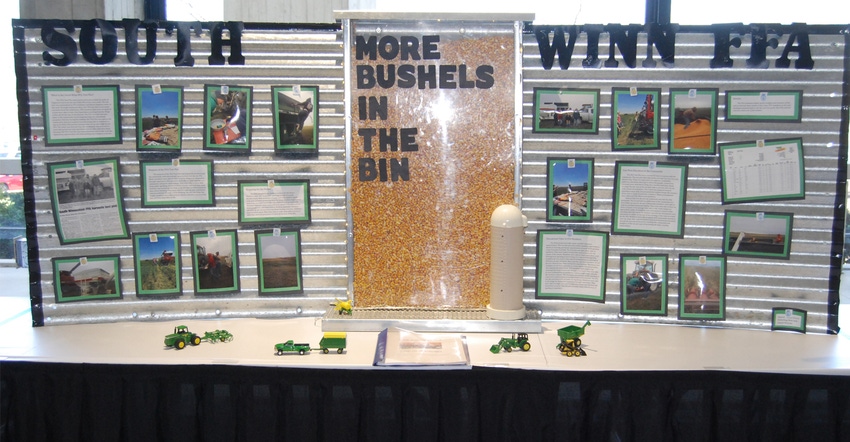January 9, 2019

The Iowa Council on Agricultural Education is seeking to ensure program quality in ag education classes provided to high school students.
Last week, the council announced it is recommending that Iowa use the National Quality Program Standards for Agriculture, Food & Natural Resource Education as the guidelines for determining quality ag education programs in the state. The standards were developed by the National Council for Agricultural Education in 2016.
“These standards are a tool designed for local agriculture, food and natural resource education programs to analyze the local program and develop clear goals and objectives for program growth,” says Will Fett, chairman of the Iowa council. “This tool is to be used by local teachers in cooperation with administrators, community partners, advisory committees, FFA support groups and/or an external assessment team.”
Analyze local programs, set goals
These standards reflect all components of an agriculture, food and natural resource education program, including classroom and laboratory instruction; work-based learning (experience, project and work-based learning through SAE — supervised agricultural experience); and career and technical student organization (leadership and personal development through FFA).
“Just as agriculture varies throughout our nation and around the world, so will our agriculture, food and natural resource education programs,” Fett says. “Use of these standards is voluntary, and local entities are encouraged to adapt the standards to meet their local needs. These standards can be used to help guide the state program evaluations when considering minimum qualifications for program approval and/or determining program funding.”
Standards based on 7 points
The standards include seven elements that help lead to program success, including program design and instruction; experiential, project and work-based learning; leadership and personal development through FFA; school and community partnerships; marketing; certified agriculture teachers and professional growth; and program planning and evaluation.
The Iowa Council on Agricultural Education is a bipartisan effort that is charged to review, develop and recommend standards for secondary and postsecondary ag education in Iowa. Taking advantage of the work from the national organization, the Iowa council reviewed the standards and voted to adopt them as the baseline for agricultural programs in Iowa high schools.
Many teachers already use standards
“Many Iowa teachers are already using these standards and modeling excellent ag education programs,” Fett says. “This set of standards will provide guidance and direction for continued improvement and growth of ag education programs here in Iowa.”
The new standards can be viewed online.
Agriculture education is offered in 235 high schools in Iowa and uses a three-component model to deliver teaching through classroom instruction, supervised agricultural experience programs and leadership development through FFA. Students who take an ag education class are eligible to join FFA. There are more than 15,400 FFA members in Iowa.
Source: Iowa Council on Ag Education, which is solely responsible for the information provided and is wholly owned by the source. Informa Business Media and all its subsidiaries are not responsible for any of the content contained in this information asset.
You May Also Like




